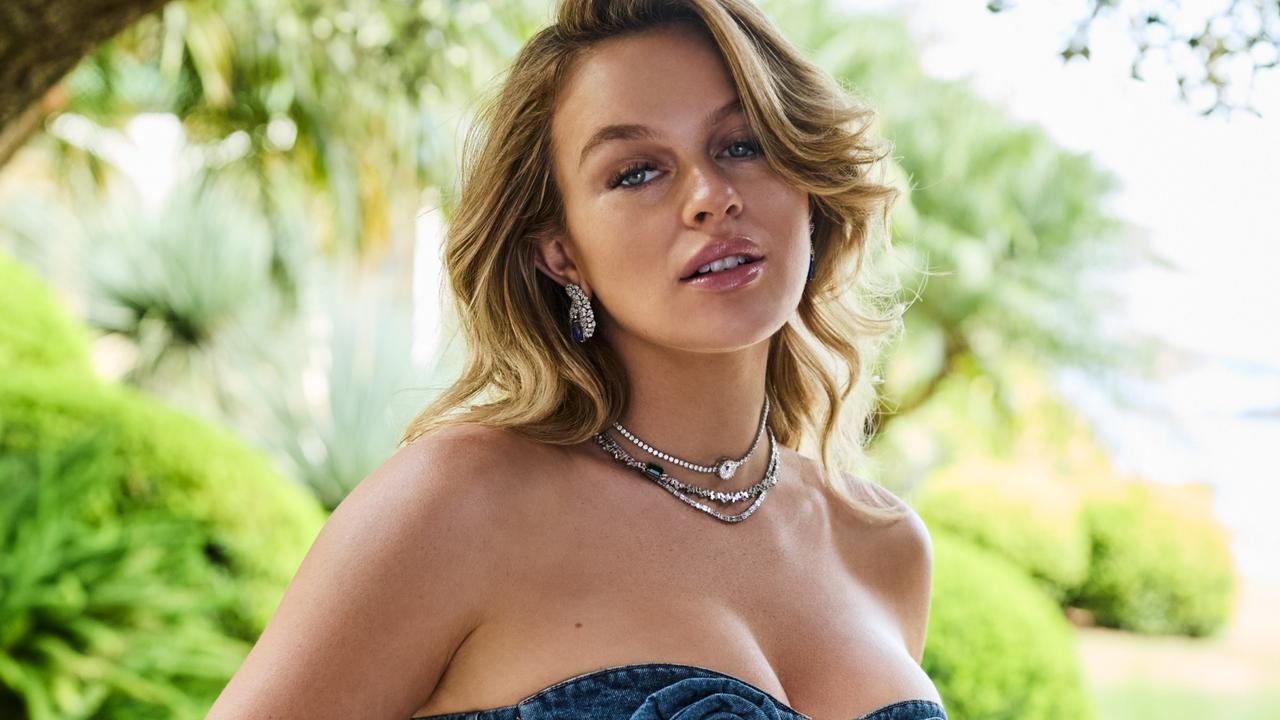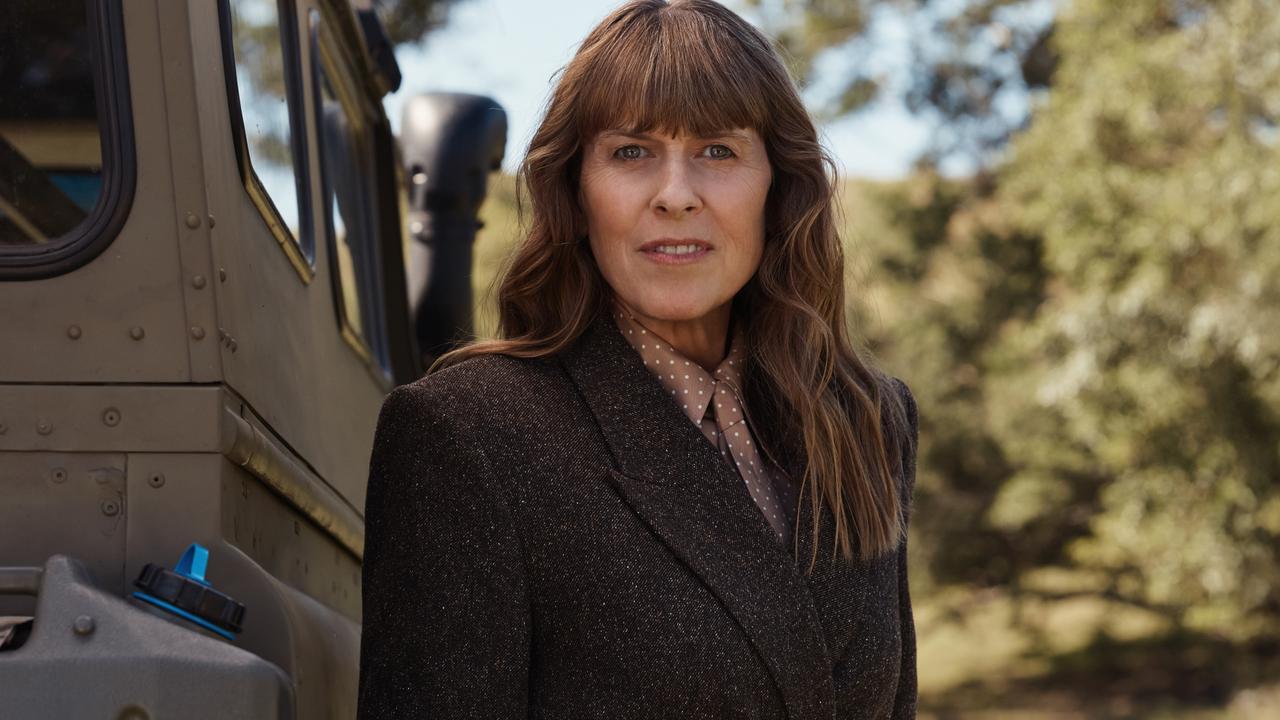Sam Frost bares all on long-term abusive relationship
In a wide-ranging interview with Stellar, Sam Frost opens up about how she was once in an abusive relationship with a man who attempted to control everything from what she wore to when she could contact him.
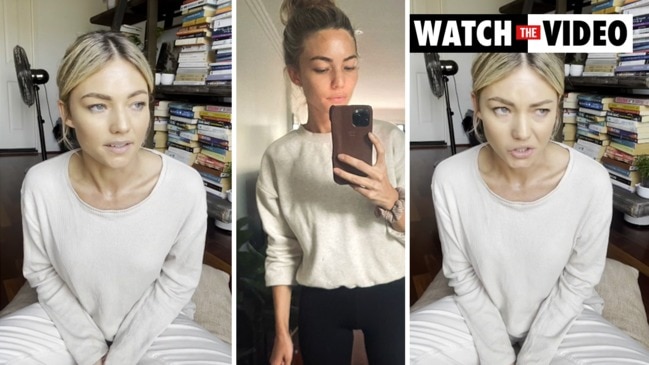
Stellar
Don't miss out on the headlines from Stellar. Followed categories will be added to My News.
The court of public opinion can be a rowdy place – and Sam Frost feels she has been on perpetual trial there for the better part of the past eight years. Her crime? As she sees it, Frost is guilty of simply being fallible. As such, and since she first appeared on The Bachelor in 2014, the bubbly young woman from the Melbourne suburb of Ferntree Gully has watched her reputation seesaw between two extremes.
According to one narrative, she was Australia’s sweetheart, the scorned also-ran who had her heart broken on prime-time TV, bounced back to front her own hugely successful season of The Bachelorette, and harnessed her popularity to land a starring role on Home And Away, despite having no acting experience.
In the other story, she was a hapless young woman who chased fame only to end up fumbling through a well-meaning, but ill-fated, attempt at a radio career and was trolled over the demise of her high-profile romances, the perpetual loser in love who kept stuffing things up.
“It’s a cycle that has happened my whole career,” Frost tells Stellar.
“And it continues to happen. It’s crazy. I don’t know too many people who have faced as much criticism for every step they take. What am I doing wrong? I don’t understand it. I don’t understand.”
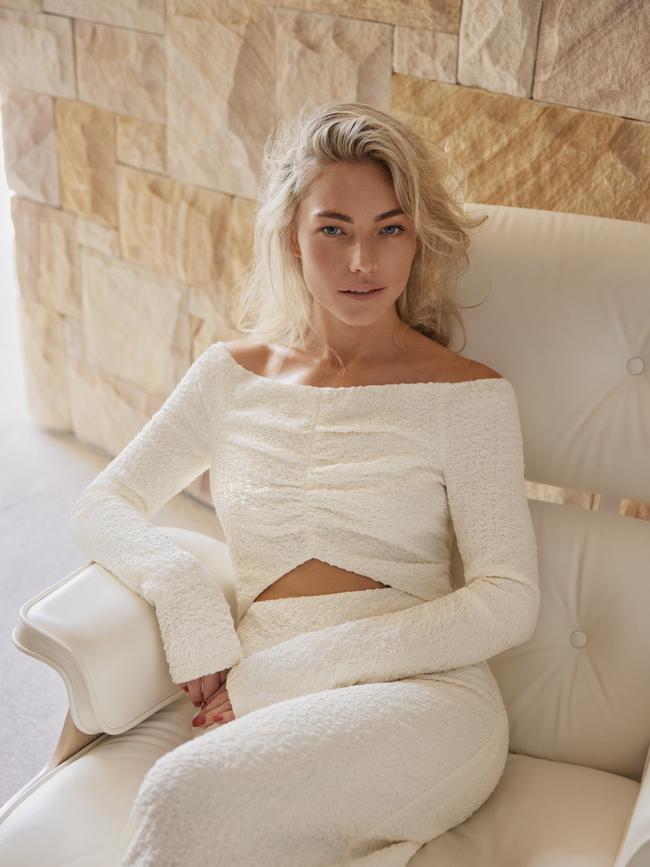
Nonetheless, Frost isn’t somebody who wants to live under the weight of regret. Because she has learnt that it will destroy her. “I can’t live like that; it’s not good fun,” she explains.
So, since the age of 25, she has worked with a psychologist to manage and mitigate her mental health issues. There’s the constant thrum of worry that’s always beneath the surface – as she says, “I’m an extremely anxious person at the best of times.”
There’s the depression that brings with it self-loathing and loneliness so crippling she once “wasted” an entire three-week Christmas holiday lying in bed with the curtains drawn.
And there’s the palpable sadness that she continues to sit with as she mourns the men who raised her: her stepfather Paul, who passed away from a stroke in 2012, and her mother’s husband Pete, who died of stage four lung cancer last May.
“Grief doesn’t get easier,” Frost says.
“But there’s beauty in grieving someone because it shows how much love you had for them, and it’s also magical because you feel them everywhere – in the choices you make and the person you are. You can feel their spirit and their strength. I don’t ever want to stop missing them.”
Pete passed away while Frost was finishing Believe, a memoir-cum-self-help book co-written with her big sister Kristine Ross (“the good angel on my shoulder”) that documents her mental health battles, and offers tips and guidance for readers who may also be struggling, while also shedding light on how she has navigated both fame and her topsy-turvy romantic life.
The book works in tandem with Believe by Sam Frost, the online community that she and Ross – a trained youth mentor and mum of two – began in 2020.
“People share their social media tiles; things that say stuff like, ‘It’s OK to say you’re not OK’, and the energy and intention is right,” Frost says.
“We’re moving in the right direction. But people still feel uncomfortable about conversations surrounding mental health. There really needs to be an open, healthy space for those – and that’s what I’m hoping to achieve.”
As Frost sits down with Stellar, she is opening up for the first time – and at length – about the events that took place last October, when she uploaded a video to Instagram in which she revealed she was hesitant about being vaccinated against Covid.
At an emotionally charged time, when millions of Australians were in lockdown until vaccination targets had been reached, the fury was immediate. Many felt her message (to say nothing of its timing) was unnecessary and socially irresponsible.
Fellow reality television alum Abbie Chatfield weighed in, saying Frost was “so ‘brave’ to ‘come out’ as putting yourself as an individual above your community because you listen to misinformation”.
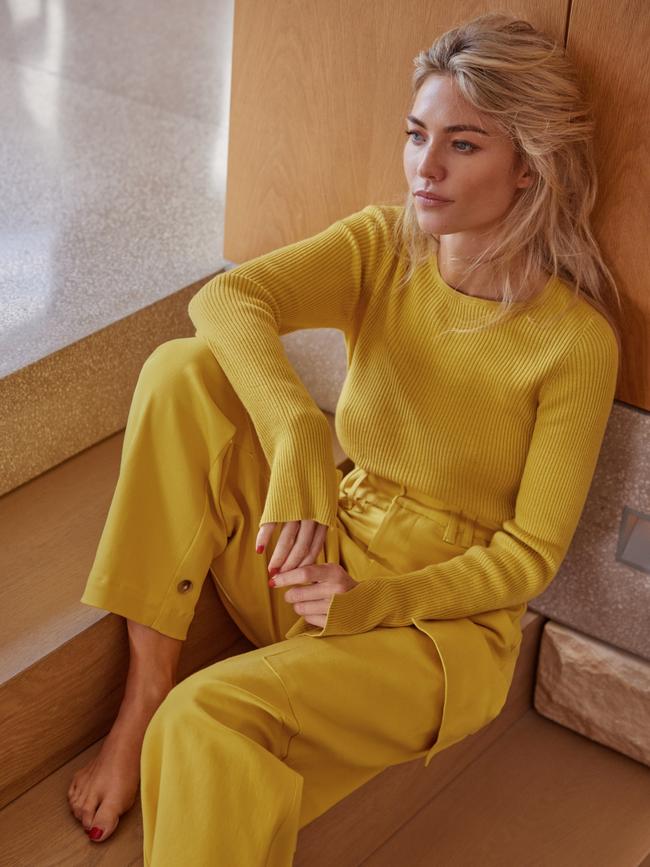
Former The Bachelor star Matt Agnew described her monologue as “a dog whistle” to anti-vaxxers, while comedian Em Rusciano called her “a privileged white woman who has worked through the pandemic”. Amid a volume of criticism across social media and the mainstream news, a shaken Frost removed the video within hours of posting it.
“I got torn to f**king pieces,” Frost tells Stellar.
“That was someone in a very vulnerable position talking about their struggles with mental health. I don’t think people understand what it’s like. I’ve been quite open with challenges that I face. There are plenty of things I keep to myself, that I keep private. But I’m open and honest [so I can] help others, and I’ve always had good intentions. And yet you still get torn down.”
Asked why she felt compelled to share the post, Frost replies, “I wasn’t in a good place. I felt alone. I thought to myself, I just wish there were someone who would say, ‘What you’re feeling is OK. It’s OK to be anxious and I’m sure you’re getting workplace pressure [to be vaccinated].’ All of social media was ‘Get the vaccine or you’re selfish.’ I felt sure there must be others who felt like me.
“I think it’s reasonable to be hesitant about a new vaccine,” she says of that time. “I was concerned about how it would affect pre-existing health conditions. I was nervous about long-term side effects. I was really anxious. I worked closely with my psychologist and I spoke to my doctor, who was in full support of me waiting [to get vaccinated].
But I ended up having a huge panic attack in their office just talking about which was the best vaccine for me. I was like, I can’t breathe. I was so mentally unwell about it.
There was pressure everywhere – ‘Get vaccinated’ on my phone, in TV ads, from the government … If they had created open, healthy conversations and spaces for people who were vaccine hesitant, I think a lot more people would have gotten vaccinated quicker, including myself. But any time we breathed a word or even tried to speak up about it, we got shut down. We got called selfish.
“The bullying of unvaccinated people was disgusting,” she argues. “Friends I’d had for years stopped talking to me. I never said I didn’t want to get it. I’m not an anti-vaxxer – are you kidding me? But I feel it’s quite unreasonable to assume that everyone’s going to think exactly the same way and that people are going to come to the exact same conclusion in the same time frame.”
But why did she feel the need to question the efficacy and safety of vaccination given the successful rollout not only in Australia, but around the world?
“I don’t really know how to answer that question,” she says. “So much was happening with the pandemic … I stopped watching the news and looking at what was going on because I felt like I was just trying to look after my health.
Sometimes you have to stay in your own bubble for your own sanity. I felt anxious. And the pressure certainly made me go, ‘Oh … this doesn’t feel right.’ That pressure, I can’t describe it.”
Of her decision to use the word “segregation” in the video, she admits, “Of course I could have used better words. But vaccinated people are allowed in the building; unvaccinated people aren’t … That’s segregating people by vaccination status. And then the media picked it up and compared it to racial segregation. I never said anything of the sort.”
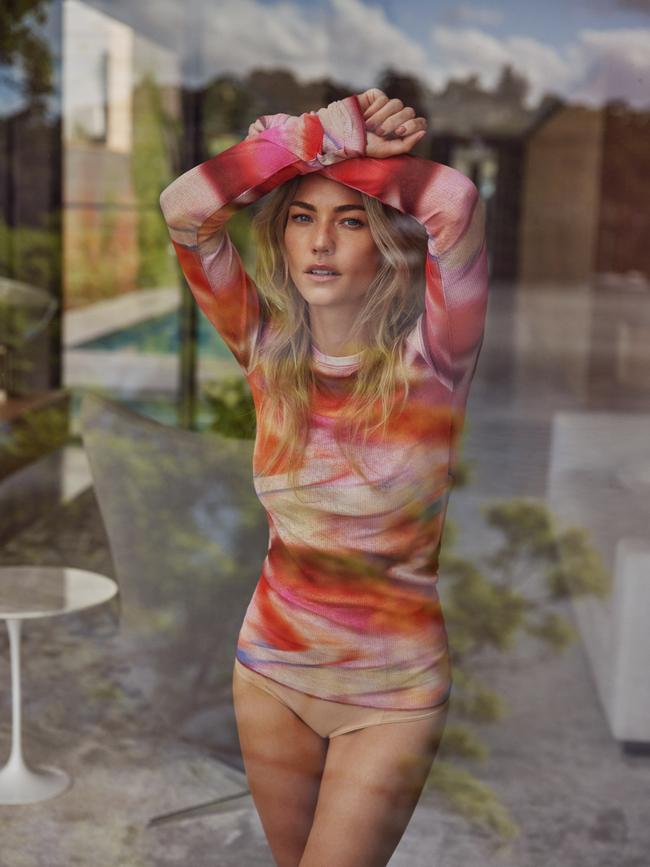
But can she understand how it’s a word that has become inextricably linked with racial division in certain parts of the world?
“Well, I certainly learnt that lesson, didn’t I?
I had no idea that word would be offensive. And of course I’m sorry about that. I would never in a million years want to intentionally upset anyone like that.”
Still, Frost says, despite the fact she pulled the post down within hours and temporarily deleted her account, she doesn’t regret sharing it.
“Because that was my truth at the time,” she explains.
“Thousands of people reached out to me – including quite a lot of high-profile people who went, ‘You’re so brave’ – and they felt the exact same way. So even though I copped it, it served its purpose of reminding people they weren’t alone and others were having the same struggles.”
Frost insists that she always planned to get vaccinated once she underwent a medical procedure (the nature of which she declines to disclose to Stellar), one that was initially slated for January.
In the end, she was fully jabbed by Boxing Day. “I sped it up because I needed to get home to see my family,” she says.
“If I hadn’t been able to see them for Christmas, then … ‘Catch you later, Sam’, basically. My mental health was that bad.”
She has since parted ways with Home And Away, having decided it was in her best interest to walk away from the job that helped her pay the mortgage, earned her a Logie nomination and proved she was more than your run-of-the-mill reality television contestant.
She says this was driven not by the backlash or any kind of disagreement with the on-set vaccine mandate, but instead reflected a shift in personal priorities.
“I loved my time on Home And Away,” she says. “But there was a divide in the workplace when it came to the vaccine and the mandate.
It used to be my safe place. I had beautiful friends who I felt were like family. But Covid changed the dynamic a lot. I was going to temporarily leave and come back, but I’m always preaching about making mental health a priority. And I wasn’t making it mine.”
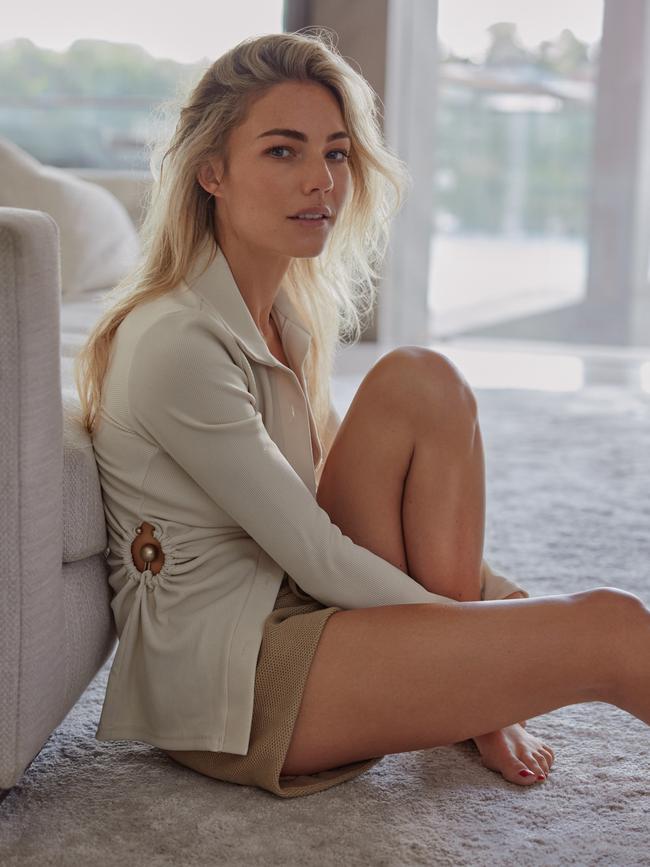
In the months since, Frost has shuttled between Sydney, where she owns a home, and Melbourne, where most of her siblings – she’s one of six children – are based; while speaking to Stellar, she’s at the home of her brother Alex, and is fresh-faced and exuberant, presumably a side effect of having spent more time with the family that fills her cup than she has at any point in the past four years.
“We’re all really, really close,” she says. “When the world feels heavy and I need to get back to my core, I go home.”
Nonetheless, she quips, “If you had told 25-year-old me who did The Bachelor that on a Saturday night at 33, I’d be single and staying in my brother’s spare bedroom, I’d have had a heart attack.”
Indeed, when she looks back on her reality TV stint, Frost only feels bemusement.
“I was just so naive, so insecure and trying to figure it all out. I think about doing The Bachelor and The Bachelorette, and I think of a drunk giraffe who can’t walk properly.
I made a lot of mistakes. I still make mistakes. But yeah, I don’t even know who that is. I mean, you never need your eyebrows that thin, Sam. Relax …” She laughs loudly. “It feels like a lifetime ago.”
Frost says she’s now “casually seeing someone”, but admits she still harbours relationship anxiety and finds dating difficult.
“I self-sabotage,” she reveals. “I’ll distance myself, so before they can hurt me, I’ll say, ‘I’m just going to go.’ I have to consciously not let old habits affect things. It’s a practice. It takes a lot of hard work.”
A key factor in her reluctance to commit, she says, is a past abusive relationship that she writes about at length for the first time in Believe. “It’s the most detail I’ve ever gone into about that,” Frost says of the nearly year-long relationship that, in hindsight, proved to be a classic case of coercive control.
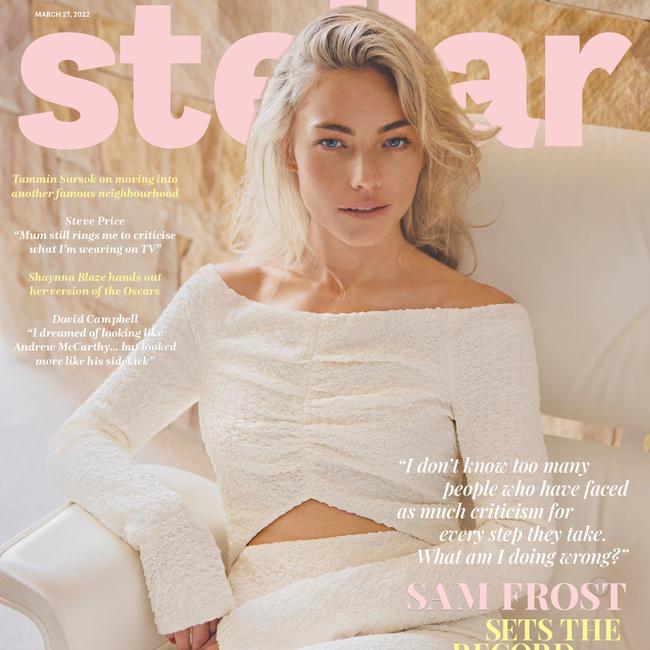
According to Frost, he forbade her from wearing short skirts, would tell her she “looked like a slut”, demanded she give him her phone passcode so he could look through her messages, and would cut her off for weeks at a time, blocking her number. By the time she left him, Frost says she weighed a mere 47kg.
“When I did the final edit of the book, reading it back was one of the most bizarre and surreal experiences,” she says. “You’re like, ‘Man, that happened to me?’ When you’re in quite a healthy space [and] reflecting back on a really dark period of time … you go, ‘Oh, should I have shared that?’ But it happened. And it’s important to share these stories, especially about toxic relationships. So many people are in them and they just don’t know they are. It’s so hard to identify. And I feel like saying to these people: I get it, I was there. I had no clue.”
Today, though, Frost is glad to be looking ahead. “I’m the happiest I’ve ever been. I feel free. I feel light.” She will soon head out to continue promoting Believe, but beyond that? “I don’t actually know what this year holds,” she admits.
“I’ve always enjoyed the unknown; I kind of like not knowing what’s around the corner. I’m just trusting in the universe. This is where I’m supposed to be right now, and what’s going to happen is going to happen. Who knows? My life is so weird.”
Believe ($32.99, Hachette Australia) is out Wednesday.



